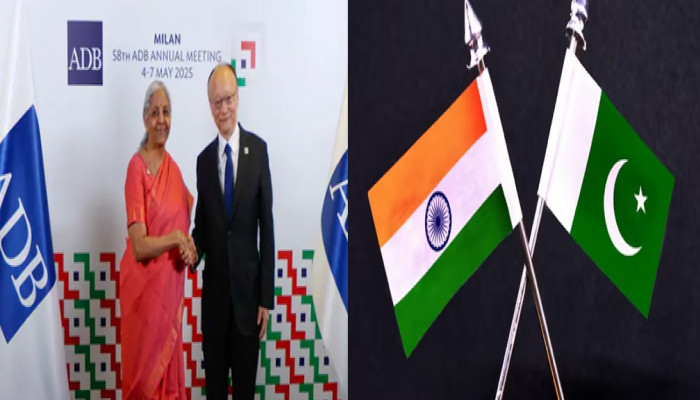India pushes ADB to halt funding to Pakistan, asks World Bank to pause Kishanganga-ratle case
- In Reports
- 05:45 PM, May 05, 2025
- Myind Staff
Union Finance Minister Nirmala Sitharaman met with Asian Development Bank (ADB) President Masato Kanda and requested a reduction in financial aid to Pakistan. This demand came in response to the Pahalgam terrorist attack that occurred on April 22. The meeting took place during the ADB's annual meeting in Milan, Italy. In addition, the Finance Minister also raised the same issue with Italian Finance Minister Giancarlo Giorgetti, according to government sources.
Pakistan is facing a severe economic crisis and depends heavily on financial support from the Asian Development Bank (ADB), a regional bank based in the Philippines. The ADB helps with many areas, such as climate programs and infrastructure, alongside support from the International Monetary Fund (IMF). According to the Finance Ministry, the meeting focused on boosting economic growth through the private sector and exploring new financial tools and models. However, it did not address whether the minister had asked to reduce funding to Pakistan. India’s decision to stop the Asian Development Bank (ADB) from giving funds to Pakistan is part of a larger effort to block financial support that could help terrorism across the border.
India also plans to raise concerns about the $7 billion aid package Pakistan received from the International Monetary Fund (IMF) in July 2024. Additionally, India is likely to push for Pakistan to be placed back on the Financial Action Task Force (FATF) grey list, which could seriously hurt Pakistan’s economy, foreign relations, and reputation in the global financial system. India is working with European countries to push for Pakistan to be put back on the FATF grey list and to reduce international financial aid to Islamabad after the terror attack in Pahalgam, sources said. India believes that aid should come with stricter rules and clear tracking to make sure it doesn’t end up funding activities that harm peace in the region. After the April 22 attack in Jammu and Kashmir’s Pahalgam—carried out by terrorists from Pakistan and killing 26 people, mostly tourists—India has taken strong actions, accusing Pakistan of supporting cross-border terrorism.
India has taken several strong measures in response to recent tensions with Pakistan. These include downgrading diplomatic relations, closing the land border, and banning Pakistan's carriers from using Indian airspace. Additionally, trade and business exchanges have been halted, visas for Pakistani nationals are no longer valid, and the Indus Water Treaty has been suspended. The Prime Minister has promised a firm response to Pakistan and has granted the Armed Forces full operational freedom to address the situation.
On the other hand, India plans to officially request Michel Lino, the neutral expert appointed by the World Bank, to pause the ongoing adjudication process. The reason behind this request is a shift in circumstances following the Pahalgam attack and the government's decision to temporarily suspend the entire treaty framework. According to high-level sources cited by ET, "India is set to ask the World Bank-appointed neutral expert, mediating the Kishanganga-Ratle hydel project dispute since 2022-23 under the Indus Waters Treaty (IWT), to put the proceedings in abeyance." The move, which essentially freezes the three-party engagement, is anticipated to be transmitted in writing to the neutral expert shortly, with a copy also provided to the World Bank.







Comments